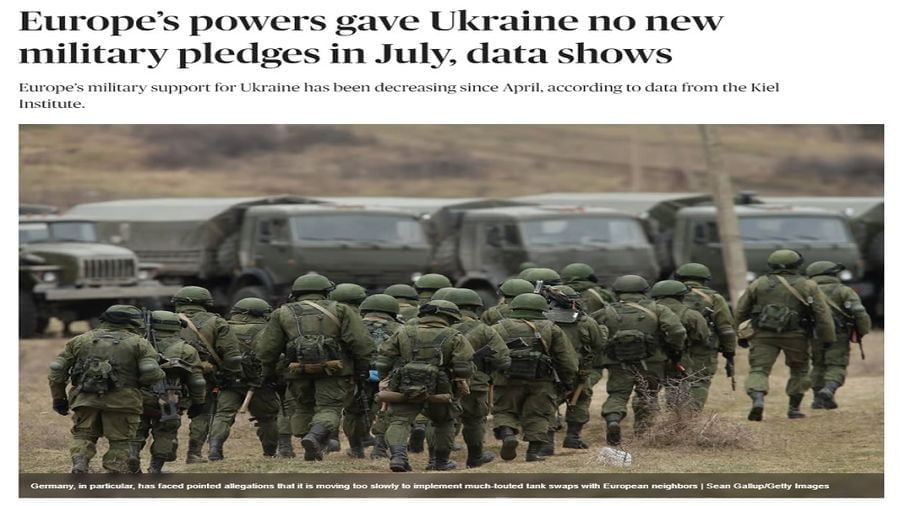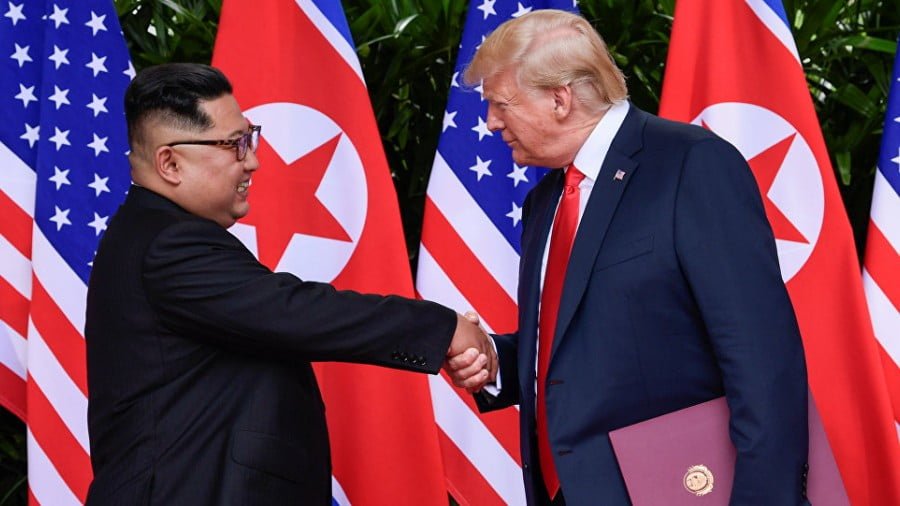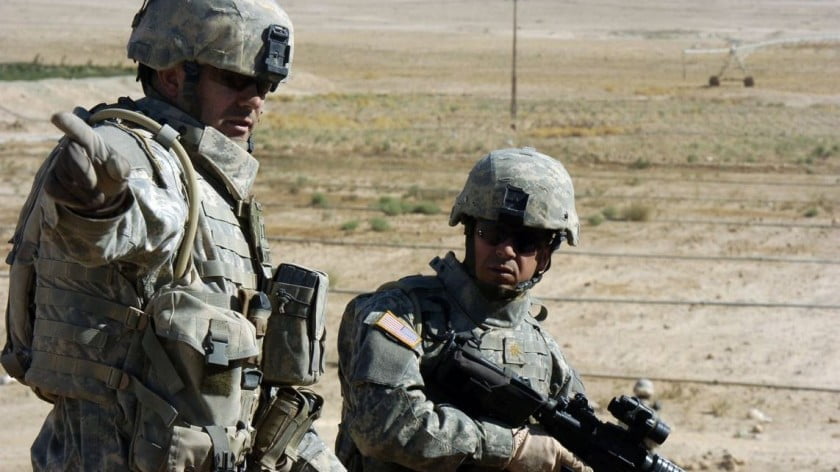The Latest Data Shows That Europe Might Be Reconsidering Its Military Support to Kiev
From the perspective of the EU’s objective interests as a whole, it doesn’t make sense to continue sending military equipment and further depleting their reserves that take so much time to replenish when nothing that they give Kiev will change the course of the conflict. The US is already shouldering the burden of so-called “leadership” so there’s no reason why anyone else has to “step up” any more than they already have.
Politico reported on the latest data released by Germany’s Kiel Institute for the World Economy, which has been running a Ukraine Support Tracker for nearly the past six months, showing that the continent’s six largest countries – the UK, France, Germany Spain, Italy, and Poland – made no new military commitments to Kiev last month. France, Italy, and Spain aren’t considered to have ever played a major role in this respect while Germany is regarded as unreliable by most observers, but nobody could have expected that the UK and Poland wouldn’t have pledged any more support for Ukraine in July.
In an effort to make sense of this surprising development, it’s important to briefly review the background context. First and most obviously, Russia continues making slow but steady progress on the ground in Ukraine. Second, this is occurring despite the tens of billions of dollars of mostly US-provided military equipment that’s already been sent to that crumbling former Soviet Republic. Third and building off of the aforesaid, European countries therefore have no real reason to continue depleting their own military reserves since the US is more than willing to keep giving away more of its own.
These Machiavellian calculations aren’t without any irony, though. First, Zelensky already offered to give his many Western patrons “patronage over a particular region of Ukraine, city, community or industry” while speaking at Davos in late May, so the Europeans might think he’ll become even more pliable as his side’s military desperation increases. Second, Poland and Ukraine merged into a de facto confederation around that same time but Warsaw quickly realized that it can’t foot all of Kiev’s bills. And finally, the UK warned in late June about wavering Western solidarity yet London itself is now wavering too.
All of these factors contribute to why Ukrainian Foreign Minister Kuleba speculated that some European countries are “waiting for us to fall and for their problems to disappear on their own”, which also implies reference to the impending bloc-wide energy crisis this coming winter that’s expected to exacerbate existing differences between its members over support for the US’ NATO-led proxy war on Russia. Moreover, the data that was just reported by the Kiel Institute might be the start of an emerging trend after US military analyst Michael Kofman predicted that the West will place Kiev on an “ammo diet”.
Significantly, he forecast this scenario just two days before that German think tank’s report was published, which suggests that he’d already seen the writing on the wall as a result of the earlier mentioned factors and others. From the perspective of the EU’s objective interests as a whole (not counting those subjective ones of various members’ leaderships like the Baltic States’), it doesn’t make sense to continue sending military equipment and further depleting their reserves that take so much time to replenish when nothing that they give Kiev will change the course of the conflict.
The US is already shouldering the burden of so-called “leadership” so there’s no reason why anyone else has to “step up” any more than they already have. Zelensky already opened the door for the neo-colonization of his crumbling former Soviet Republic, which was a massive mistake in hindsight since it actually served to disincentivize his patrons from keeping up the pace of their support for his forces because they believe that they can gain more from Kiev as its military desperation increases. If this trend stays on track, then Kiev might be compelled to capitulate to Moscow’s demands by the end of the year.







